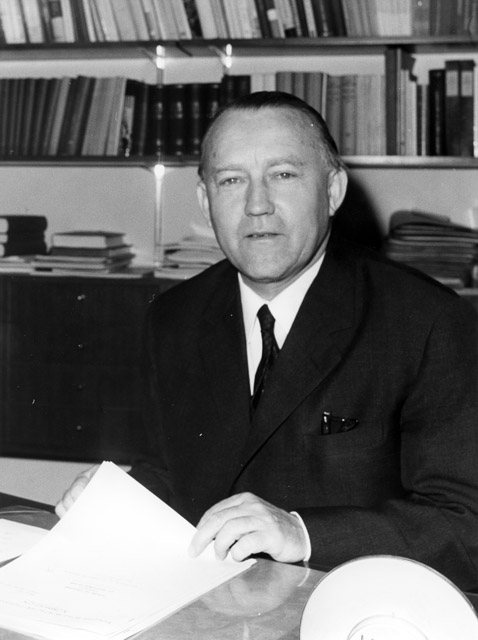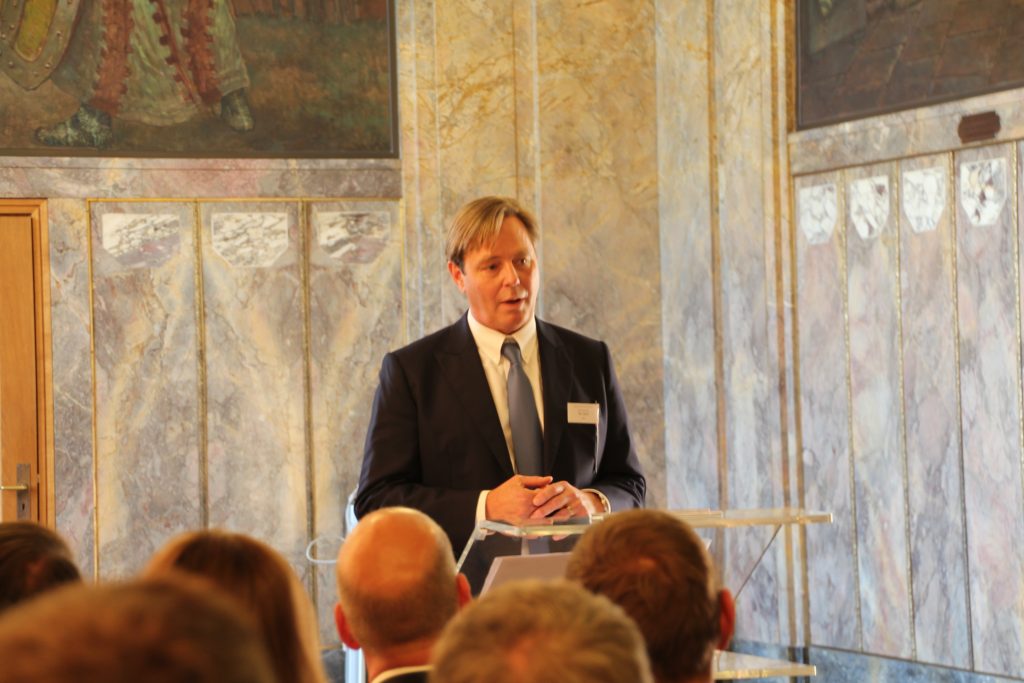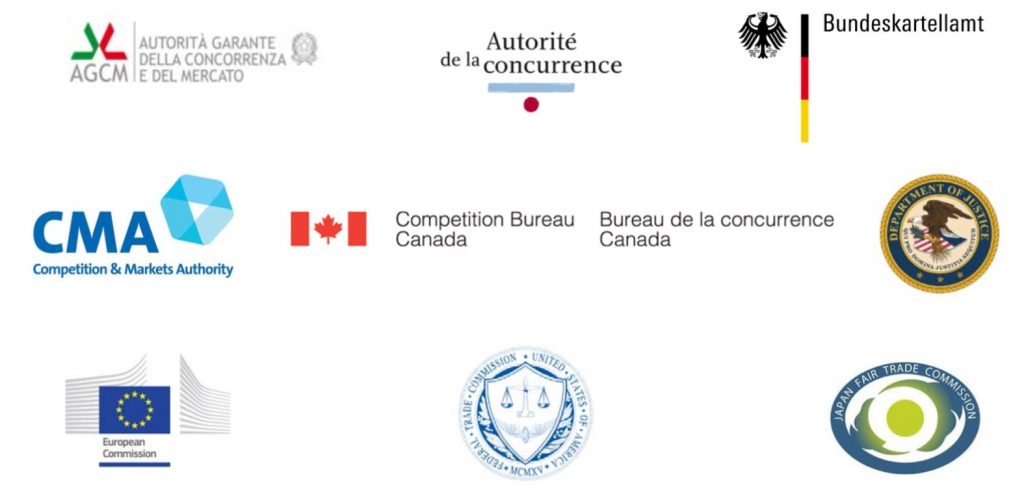
SSNIPpets (31): Albrecht Leyenheart
For the first time, the European Commission has a female President. Even more exciting: her family roots. From an antitrust point of view, however, this is just one of far too many news this week. Summer break seems to be approaching, so much is going on again. Rupprecht Podszun has seen the news, here are his SSNIPpets – small but significant news, information and pleasantries – our pet project!
Daddy Cool
The European Commission has a new boss. Ursula von der Leyen made it a pillar of her campaign that she was born in Brussels in 1958. Here is why: Her father Ernst Albrecht, later the Prime Minister of German Land Lower Saxony, was 28 years old at the time, and the birth of little Ursula coincided with the first year of the European Economic Community. Albrecht became Head of Cabinet of Hans von der Groeben, the first Commissioner for Competition, when the European Commission was founded, and he remained in office until 1967, when he followed legendary Pieter verLoren van Themaat as Director-General for Competition. In 1970 he was elected to the Lower Saxony Parliament (and worked in parallel as a Deputy Managing Director for Bahlsen cookies – those were the careers in those days). From then on he became a famous politician in German, yet his track record in competition matters got weaker. Up to this point, however, he had left his marks. If you browse through the (far too rare) reports on the history of European competition law, you will come across Ernst Albrecht. For example, historian Katja Seidel from Westminster University writes in a book contribution about DG IV (as DG COMP was called in the days of von der Groeben):

“Together with Commissioner von der Groeben and his cabinet these officials [young and inexperienced, sanguine men working for the Commission] set off to develop a European competition policy. Initially, von der Groeben, VerLoren van Themaat and Ernst Albrecht, von der Groeben’s chef de cabinet, were most influential in formulating the basic ideas of the Commission’s competition policy.” (in Kaiser/Leucht/Rasmussen, The History of the European Union: Origins of a trans- and supranational polity 1950-72, Routledge 2009, p. 129, 135).
Albrecht had received his doctorate under the supervision of Fritz W. Meyer, a renowned Freiburg ordoliberal. Franz Böhm’s scholar Ernst-Joachim Mestmäcker, now one of Germany’s most revered competition law professors, is often mentioned in this context, too, as an advisor to DG IV. An ordoliberal network that shaped European competition policy – and the father of the new Commission President right in the centre of it?

Perhaps. But maybe, things were completely different. Some authors claim that the ordoliberal spirit in the 1950s and 60s is “a widely exaggerated myth”. That is not a trivial point: If EU competition law is built on ordoliberal foundations this may play a role for interpreting the rules (largely unchanged) today. For the time being, I suggest that we leave this discussion to scholars, and instead remind Frau von der Leyen of her daddy once in a while in order to stress the central role of competition law for the success of the European project.
Speaking of personal details…
We had already announced that Johannes Laitenberger, the current successor of Daddy von der Leyen, would be moving to the European Court. So he’s not going into German state politics, fortunately. Another prominent lawyer will also remain with us: Nils Wahl, whose mandate as Advocate General has already ended, will be back on stage from October onwards as a judge at the European Court of Justice. So everyone who loves the “more economic approach” (and thus Nils Wahl) will have a new chance to implement it.

Another name to know: Pierre Régibeau. who changes sides from Charles River Associates, the economic consultancy, and will become Chief Economist of the Commission from September. His predecessor Tommaso Valetti will be missed, not least for his incredibly funny tweets. And since you can’t greet your successor any better than Valetti did, we simply refer you to the corresponding entry on Twitter!
Amazon’s double strike
Meanwhile, the Commission is doing what it has to do when the finishing line is in sight: go for a strong finish. Proceedings were opened against Amazon for the use of transaction data just after the Bundeskartellamt had discontinued its proceedings against Amazon after striking a deal with the company. Both cases are about the terms and conditions that Amazon uses vis-à-vis traders who sell via Amazon Marketplace (and are thus also competitors of Amazon itself). We only know about the Bonn proceedings from a case report. Since an agreement has been reached, there will not be any more formal document. This may be reassuring for Amazon, since it has not been formally established that the company is dominant (or has superior bargaining power), let alone anything that may serve as a reasonable basis for follow-on claims. That is deplorable for competition law scholars, somehow. Yet, it’s probably the price you pay if you can change the terms and conditions of Amazon worldwide (!). Margrethe Vestager called it “Great work” on Twitter what her Bonn colleagues had achieved.
Spot the difference between the two proceedings: It seems to me that the Bundeskartellamt used the tool of exploitative abuse to make Amazon flinch (as explicitly stated in the case report), while the Commission is more likely to base the case on infringements of Art. 101 TFEU and exclusionary abuses under Art. 102 TFEU (requiring market dominance).
For Amazon it is, by the way, only the second showing in Brussels after the e-books case of 2017. There has not been any merger control, and just this one antitrust case before. I guess that Lina Khan sighs, that it’s about time.
The Glorious 7
One file closes, and on the same day, three hours by Thalys away, the next file opens. Amazonizing. But there were other phenomena this week, unseen before, such as a statement by the G7 competition authorities on the role of competition in the digital age. I can’t remember having seen anything like this before in my life. You can read the statement on the Bundeskartellamt’s website for instance. It is hard to read what this means. Everything laid down in there I find good/right/sensible/meaningful/worthy of consideration. Perhaps, as an authority, you have to talk about yourself from time to time so that governments don’t come up with silly ideas.
The initiative seems to have come from France, and if you look for an example of silly ideas, you might think of banning the objective of undistorted competition from the provisions of the TFEU into a footnote. This was the operation of a guy called Nicolas Sarkozy, remember? It is therefore more than gratifying that in Chantilly, France, the finance ministers of the G7 were now allowed to hear what a decisive role the competition agencies can play in shaping the digital economy. If you want to know more, follow Isabelle da Silva, the very active French competition chief, on Twitter.

Drumbeats
It is my duty to report three other decisions to my esteemed readers:
Firstly, the Commission authorised Vodafone to take over Unitymedia. As a key remedy, rival Telefonica will have access to Vodafone’s cable network in Germany. In Germany, so the Commission’s core argument for allowing the merger to proceed ran, markets of Vodafone and Unitymedia do not overlap. Let us all pray to the holy spirit of narrow market definition!
Secondly, the Bundeskartellamt prohibited Remondis, a leading waste management company, to merge with DSD dual system, another important company in the sector. A case report has not yet been made available, but it was obvious that this mega-merger of rubbish stood bad chances. After all, it was a case from the Remondis shopping tour that was subject to notification with the Bundeskartellamt. In it’s latest Activity Report, the Bundeskartellamt stated that some of the projects of Remondis could not be examined because of too high turnover thresholds, and the impression arose that the Bundeskartellamt would therefore like to see the thresholds changed in the 10th amendment to the German competition act that is expected in the coming weeks as a draft. Whether or not there is a need for comprehensive changes will probably depend on whether the waste sector is an annoying specific case or whether there are more takeovers that are really important but are out of reach for the agency.
Thirdly, the ping-pong between the Cartel Senate of the Federal Supreme Court in Germany (Bundesgerichtshof, BGH) and the Senates of the Higher Regional Court of Düsseldorf (Oberlandesgericht, OLG) reach a new climax: In the proceedings on the sweets cartel, the BGH decided to annul the Düsseldorf decision and refer it back to another senate. The decision was even revoked for those parties who did not lodge an appeal at all. “The assessment of the evidence is incomplete because there is no information on what the parties involved said during the hearings”, the BGH stated. The decision is not even 12 pages long. The BGH held that there was no need to dig any deeper, since the decision is so flawed: Now another senate in Düsseldorf needs to start the case all over again. Bam!
Qualcomm’s ressources
The Commission also imposed a hefty fine this week: EUR 242 million on Qualcomm for the predatory pricing of 3G baseband chipsets. So, another fine in one of the rare abuse cases of the Commission against Big Tech.
The case is noteworthy for another reason, too. In 2010, Qualcomm’s competitor Icera lodged a complaint with the Commission. Since then, the Commission has investigated, sought information, deliberated on the case and issued a Statement of Objections in 2015. (Hold on – this case takes even longer than Google Shopping!). When the Commission wanted further information from Qualcomm in 2017, Qualcomm had the deadline elapse. The Commission issued a formal decision, yet Qualcomm went to court. If you read the General Court’s ruling on this matter, you can easily guess that at some point, Qualcomm was simply fed up with ever more requests for information. They had had enough.
An error, according to the Court in case T-371/17. The rather lengthy discussion of Qualcomm’s numerous arguments (first in interim proceedings, then in the main proceedings) can be reduced to the common denominator: What is necessary in terms of information is also proportionate, even if this comes with enormous efforts for the company under investigation. And necessity, oh you have it, in such a complex abuse case that needs to meet economic standards! Qualcomm is not giving up, though, (does not make a difference anyway, I presume) the case on the information request is pending with the Court of Justice. (Obviously the losses caused by low prices were not so high that one could not afford litigation.)
Btw, the rapporteur for the General Court was Eugène Buttigieg. If that unusual surname sounds familiar to you, you are probably following the US Presidential Debates: Pete Buttigieg is one of those Democratic hopefuls who want to challenge Donald Trump, he is the charismatic mayor of South Bend. Pete’s dad comes from Malta, Eugène too. On Gozo, the second largest Maltese island, the surname Buttigieg is the sixth most common, so it corresponds to “Weber” in Germany (Let’s hope for Pete Buttigieg that he is spared in his career from enduring what Manfred Weber had to go through). Buttigieg comes from the Arabic and probably means “poulterer”. If you want to know now how to pronounce it: Watch this. (And now, please do not say that reading theses SSNIPpets was a waste of time – you learned something!)
To the final

We like footballer Leroy Sané firstly because he would have led Germany to the title of World Champion in the 2018 tournament if only he had been fielded, and secondly because he serves as a great role model for unique outfits. We can learn a lot in that regard. Leroy, as we call him, since we are on a first-name basis with all football stars, is currently a hot commodity on the transfer market, competition for him is on fire with Bayern Munich dragging him to Germany, while Man City tries to keep him on English soil. (The Düsseldorf-based band “Die Toten Hosen” famously once sang they would never ever join FC Bayern, and so this is our well-sustained Düsseldorf advice.)
Now, Leroy was in the centre of another competition: He came to the ManCity “clubhouse” with a red hoodie with a Nike logo. His entering the premises was filmed and published. What a mistake: ManCity is under contract with Nike rival Puma so Leroy is not to be seen with a Nike logo on ManCity premises. Goodness gracious! How do you react as the ManCity PR official? You delete the video, edit the recording, put the video online again, now without the rival logo – and of course, viewers do no longer detect any traces of editing, and obviously no reference is made to the editing. That’s how tough competition goes in the digital age.
Have a nice weekend!
3 thoughts on “SSNIPpets (31): Albrecht Leyenheart”
Nice to read your this post. Amazing blog!. I thought that Mr. Tommaso Valetti is funny person, right ? thanks for direct link to Twitter